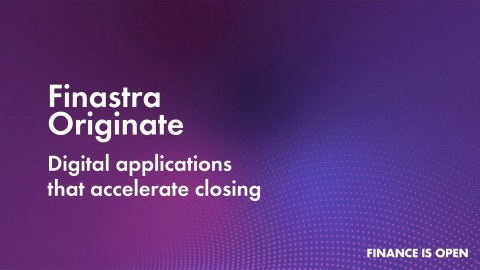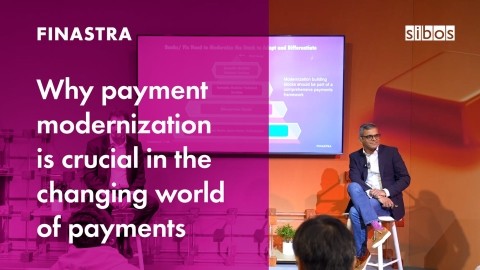Episode 1: Isabel Fernandez – Lending and Corporate Banking Outlook 2024
As we enter into a new year, it is time to look ahead and anticipate the trends and challenges that will shape the lending industry in 2024. Isabel Fernandez, EVP of Lending at Finastra, explains how banks can navigate the challenges and opportunities of 2024 by prioritizing modernization and personalization, adopting Gen AI, embedding an ESG architecture, and collaborating with fintechs. She shares her insights on how these strategies can help banks meet the demands of their customers for faster, smoother, and more personalized lending experiences, and how they can enhance the quality and efficiency of their processes.
Looking back on 2023
GenAI: A game-changer for the industry
One trend that emerged in 2023 was the rise of generative AI. GenAI has the potential to reshape industries and free up capacity, thereby adding huge value to the global economy. “What I find exciting is the idea of GenAI liberating our creative potential. They say that success is 1% inspiration and 99% perspiration. What if GenAI could take away some of that "perspiration”, Isabel Fernandez, Lending EVP.
ESG: A key priority for lenders
ESG and sustainable finance have become increasingly important to banks. With growing investment in sustainability-linked projects, banks face growing demand for greener products. However, they also face the potential for new regulatory requirements that they’ll need to adhere to. Growing the ESG business is largely a data problem, so institutions will need to have a proper strategy and the right systems and tools in place to manage, measure and monitor ESG data.
Looking ahead to 2024
Invincible duo: Customer-centricity and compliance
When it comes to financial services technology, there are two key trends that demand the spotlight.
The first trend is changing customer expectations: customers are demanding faster, easier, and more personalized lending experiences that reflect the experiences they see in other parts of their banking lives, for example in retail banking. Customers want to have more control and transparency over their financial decisions, and to meet these expectations, lenders need to invest in customer-centric solutions, such as AI, unified data management, and unified communication channels.
The second trend to note is regulation and compliance. Lenders need to handle complex and evolving reporting requirements, while reducing manual input and minimizing errors. They also need to ensure that they follow best practices and standards in terms of data security, privacy, and ethics. To achieve this, lenders require agile and flexible platforms that can adapt to the changing regulatory environment and provide them with the tools and insights they need. Ideally, lenders need solutions that do a lot of the compliance heavy lifting for them and constantly stay up-to-date with regulation changes.
Regulation and compliance: Four key areas of regulation to watch
- Basel IV – requires banks to rethink their business models and diversify their revenue sources (or even exit some markets and activities). Basel IV's deadline forces banks to start work gathering and testing data in 2024.
- ESG & sustainable finance – in the near future, the industry will face increased regulatory oversight as it relates to sustainable finance. Within the Basel IV reporting standards, banks will need to report taxonomy-aligned economic activities for two environmental objectives, with plans to expand to four. Finastra’s ESG Service enables the integration of ESG performance criteria into risk and pricing, supporting financial institutions as they track ESG data, analyze it swiftly, and commit to achieving their targets.
- GenAI – has the potential to drive competitive advantage, but also poses challenges and risks. GenAI can introduce bias, errors, or ethical issues in credit decisioning, appraisal, target advertising, and employment software. The technology is therefore under the regulatory ‘microscope’ to ensure its responsible and transparent use.
- Dodd Frank Act 1071 – aims to facilitate fair lending and identify business needs and opportunities for diverse small businesses in the USA. 1071 data is essential in helping the CFPB and lenders ensure fair and adequate credit access for diverse small businesses, which are vital for the US economy. Finastra is engaged with our US-based clients about the impact of 1071, and we're on-hand to help financial institutions remain compliant.
Watch the video and join the conversation.


